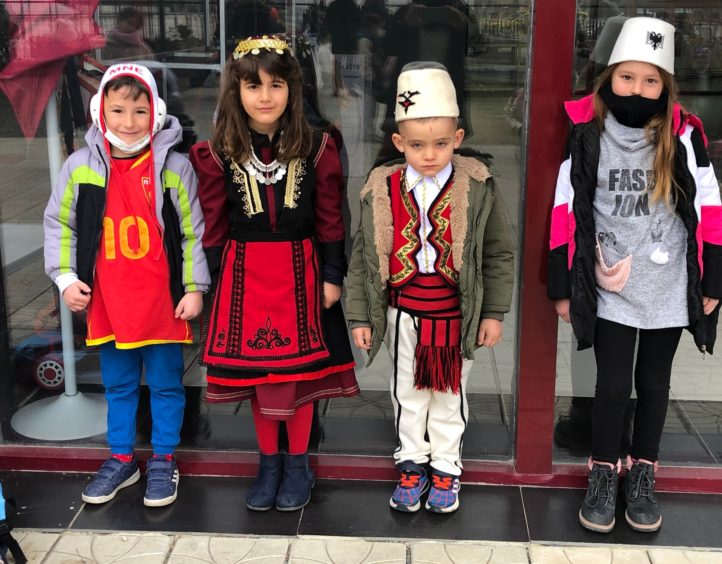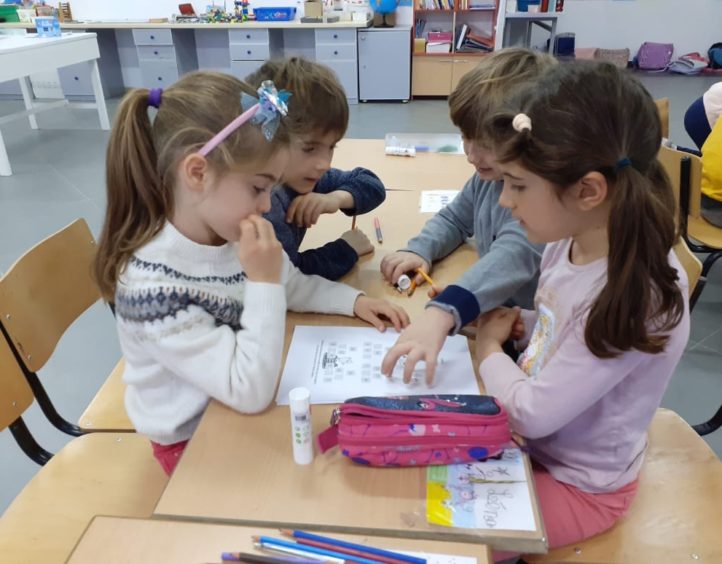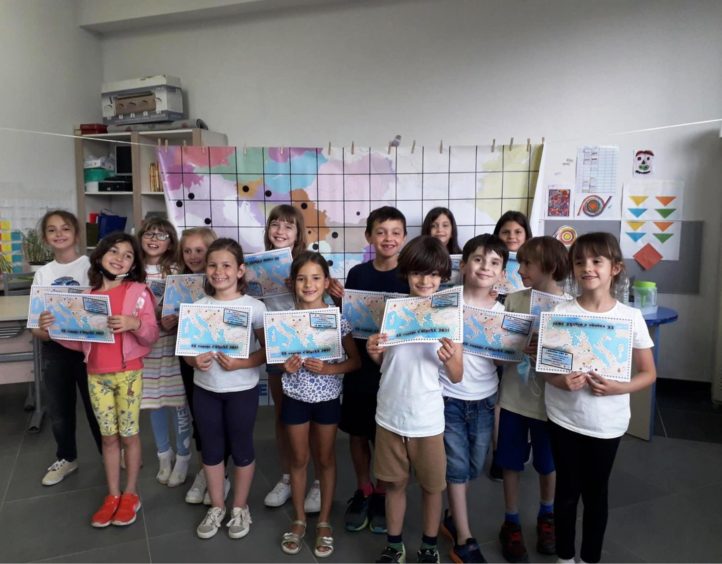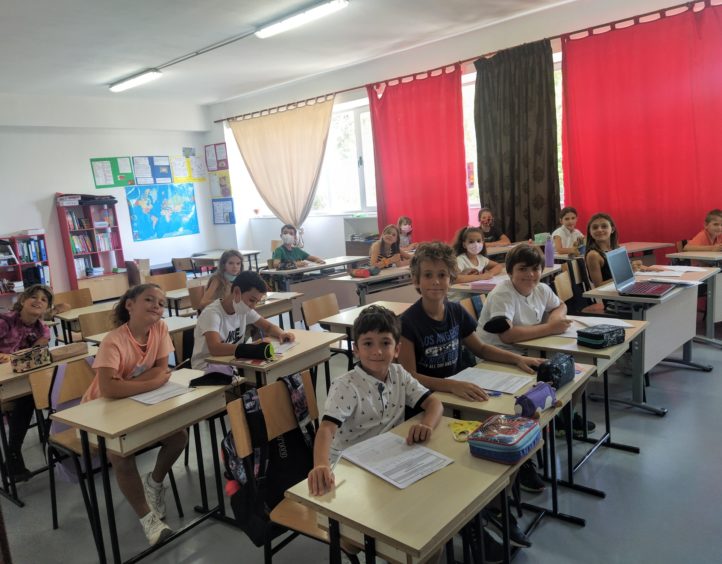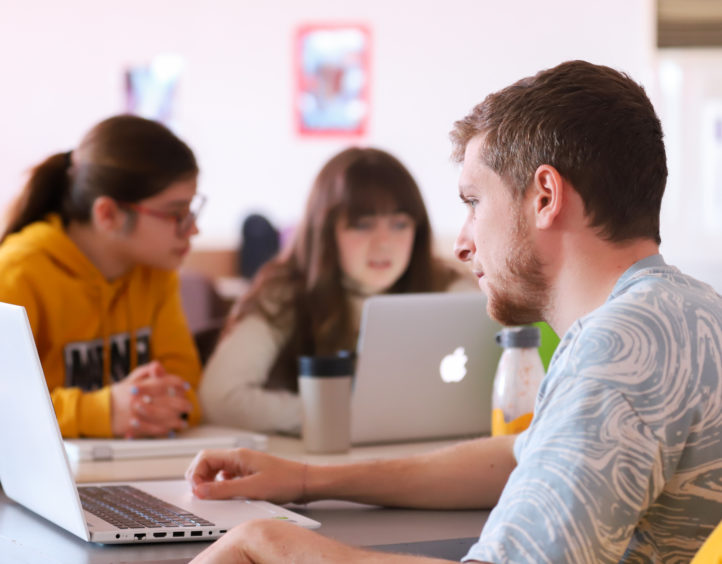Our school
EFI Tirana
Founded in 2011, the French International School of Tirana (EFIT) now accommodates 200 students from nursery to secondary school.
Since September 2019, the school has benefitted from a new campus, ideally located in the dynamic district of Tirana East Gate where various other leading international schools are based and which offers the perfect environment for learning and personal development. Steeped in history, the campus now boasts innovative infrastructure and facilities.
With its dynamic and committed teaching team, the School aims to provide each student with extensive knowledge and skills and an educational approach that is open to Europe and the entire world.
The School is committed to promoting the French language and culture in a secular, multilingual and intercultural teaching environment.
EFIT is the only French school in Albania approved by the French Ministry of Education up to Year 6 level (CM2). From secondary school onwards (Year 7), teaching is based on the curriculum of the National Centre for Distance Education (CNED) and delivered on site by assistant professors.
Furthermore, all students from EFIT can continue their studies at an ODYSSEY school abroad or at an institution within the global AEFE network without taking an entrance exam.
INTER-CULTURAL TEACHING
A French education in a multilingual and intercultural environment.
From the first year of Nursery School to Secondary School, our students benefit from a rigorous teaching approach which follows the curriculum established by the French Ministry of Education, leading to the “Diplôme National du Brevet” (French National Diploma) and preparing students for the French “Baccalauréat”.
The school currently hosts about 150 students aged 2 to 15 years old, representing many nationalities (Albanian, French, Belgian, Swiss, American, Italian, Greek, Spanish and Ukrainian).
The students are divided into nine classes with small numbers, which ensures excellent conditions for learning.
Cycle 1
Nursery school from 3 to 5 years old: the basic learning cycle
Nursery school is the “basic learning cycle” because from this point onward learning is at the heart of the approach to becoming a student. Lessons are taught from the age of 2.
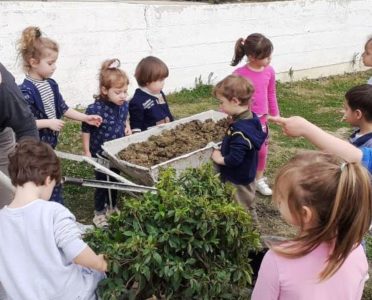
the very small section (2 years old),
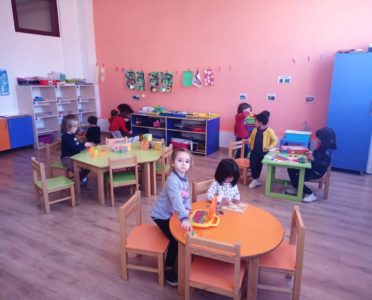
the small section (3 years old),
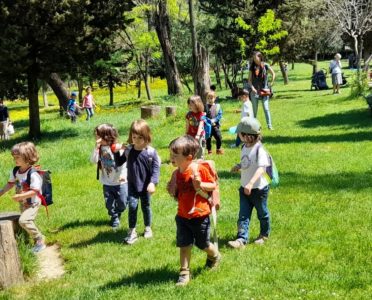
the middle section (4 years old),
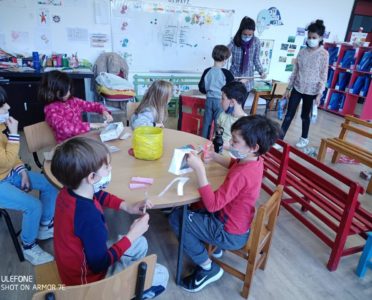
the big section (5 years old).
The main objective of nursery school
is to acquire a rich, organised grasp of oral language in order to be understood by others.
AREAS OF LEARNING
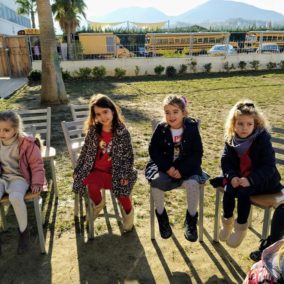
appropriating language
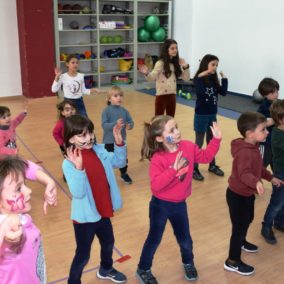
acting and expressing oneself with the body
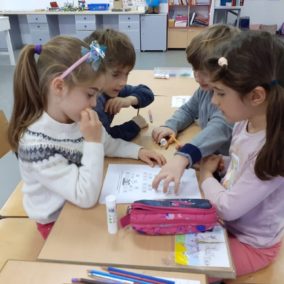
discovering writing
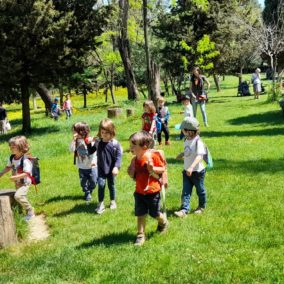
discovering the world
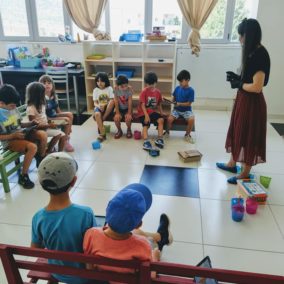
becoming a student
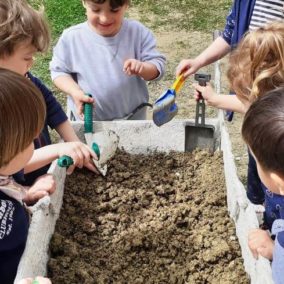
perceiving, feeling, imagining and creating
BILINGUAL EDUCATION
Our French, English and bilingual programs form the foundation of our students’ development and future learning.
READY FOR PRIMARY SCHOOL
Organised to accommodate young children, the nursery stage is specific to France. Its goal is to help each child become independent and acquire the knowledge and skills enabling them to master the essentials of learning by the time they enter Year 2. The warm and caring environment of EFIT fully caters to the specific needs of children from 2 to 5 years old.
Cycle 2
The fundamental learning cycle
The fundamental learning cycle begins in Year 2 and continues in Years 3 and 4.
The Cycle 2 programmes promote continuity with the nursery school phase by organising lessons into major areas of activity:
- French
- Mathematics
- Modern languages
- Physical and sports education
- Arts education
- Questioning the world
- Moral and civic education
QUESTIONING THE WORLD
Learning at school means questioning the world. It is also about acquiring specific languages, acquisitions for which the simple fact of growing up is not enough. Cycle 2 now covers the period from Year 2 to Year 4, thus offering the necessary length of time and coherence for progressive learning to a high standard. In cycle 2, all lessons involve questioning the world. Mastering language, and in particular the French language, is the top priority.
Cycle 3
The reinforcement cycle
Cycle 3 covers Years 5, 6 and 7, thus including parts of primary school and secondary school.
The areas of learning are based on
- French
- Mathematics
- Modern languages
- Physical and sports education
- Arts education
- Questioning the world
- Civics
Cycle 3 now connects the last two years of primary school and the first year of secondary school, with the aim of reinforcing educational continuity and learning coherence to promote the acquisition of a common core of knowledge, skills and culture.
Cycle 3
to consolidate the knowledge gained in fundamental learning cycle 2 which establishes the conditions for further learning; to enable a better transition between primary and secondary school by ensuring continuity and a natural progression between the three years of the cycle.
Learning at secondary school
Year 7 has a special place in the cycle: it enables students to adapt to the pace, teaching organisation and environment of secondary school while continuing the learning process begun in Years 5 and 6.
This cycle 3 programme thus promotes the gradual and natural acquisition of the knowledge taught in various disciplines, as well as their languages, approaches and specific methods. In prior years, the same multi-skilled teacher was responsible for teaching several subjects and for establishing connections between the common core curriculum’s different areas. However, in Year 7, the material is taught by several teachers who are specialists in their field. Through common themes and established links between subjects, these teachers contribute collectively to the skill acquisition that is defined in the common core curriculum.
The secondary school accommodates students from 11 to 15 years old, after primary school. This phase of schooling is structured over four years. It precedes students’ entry into further education. Our teaching approach puts the emphasis on languages, the deepening and broadening of fundamental knowledge and the individual development of the student. The “Common Core of Knowledge and Skills” defines what every student should know and master by the end of secondary school. It comprises eight areas of competence:
- Oral and written French language
- Mathematical, scientific and computer languages
- Representations of the world and human activity
- Foreign and regional languages
- Natural and technical systems
- Languages of the arts and body
- Training of people and civic values
- Learning methods and tools
The secondary school’s mission is to:
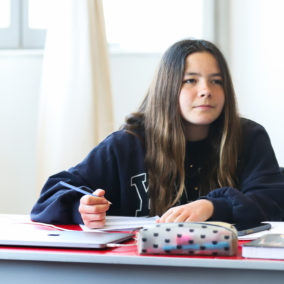
provide all students with a general education which, in the continuity of primary school, enables them to acquire the fundamental knowledge and skills that make up a common culture and are assessed by the national diploma;
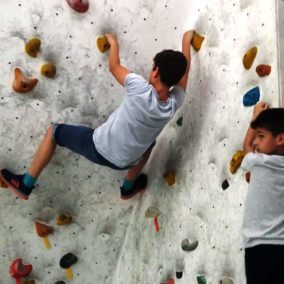
offer optional subjects which reflect the students’ specific preferences and talents;
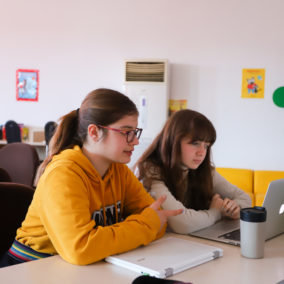
prepare students for the training pathways available after secondary school.
Sixth Form
The purpose of the sixth form is to enable students between the ages of 15 and 18 to acquire the necessary range of knowledge and skills to pursue higher education or enter the workforce. Sixth form studies culminate in the obtaining of the French Baccalaureate.
Do you need any further information?
The Admissions Office team will be happy to answer any questions you may have.

